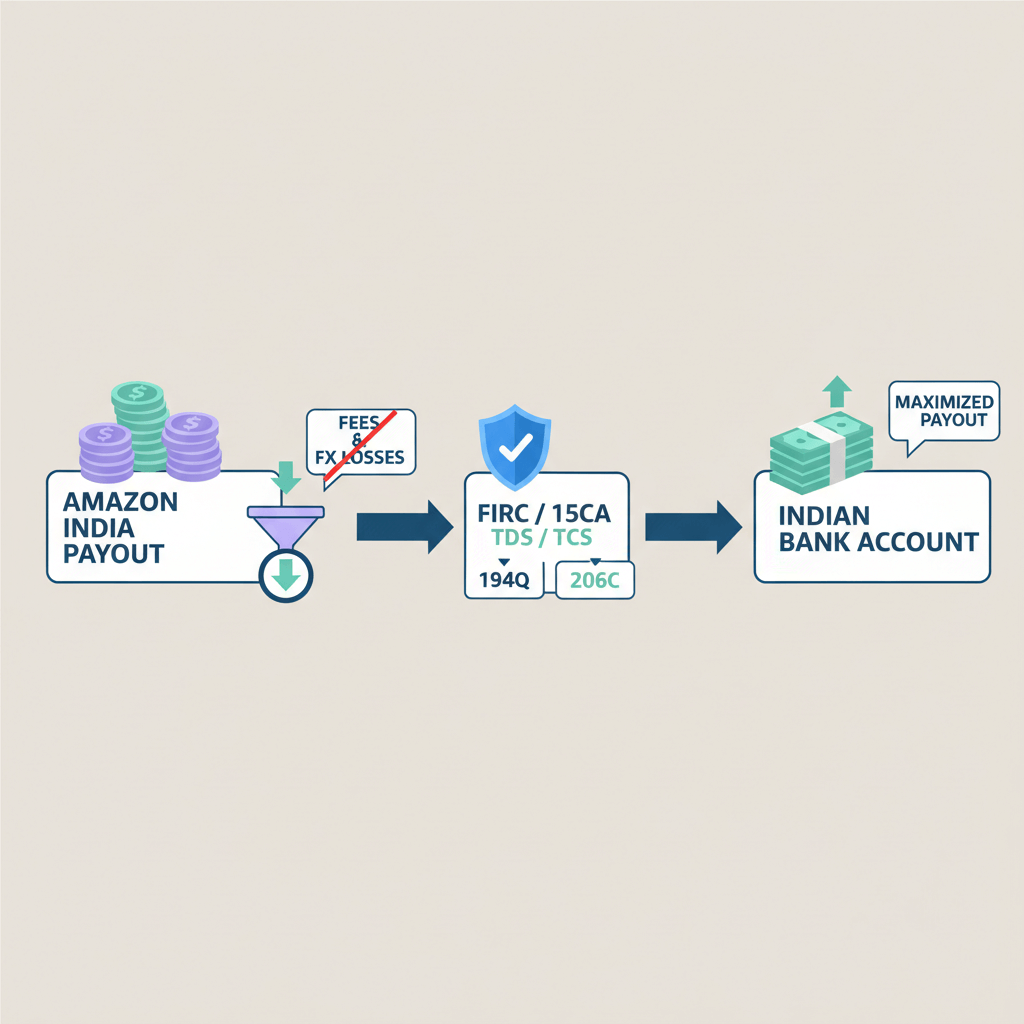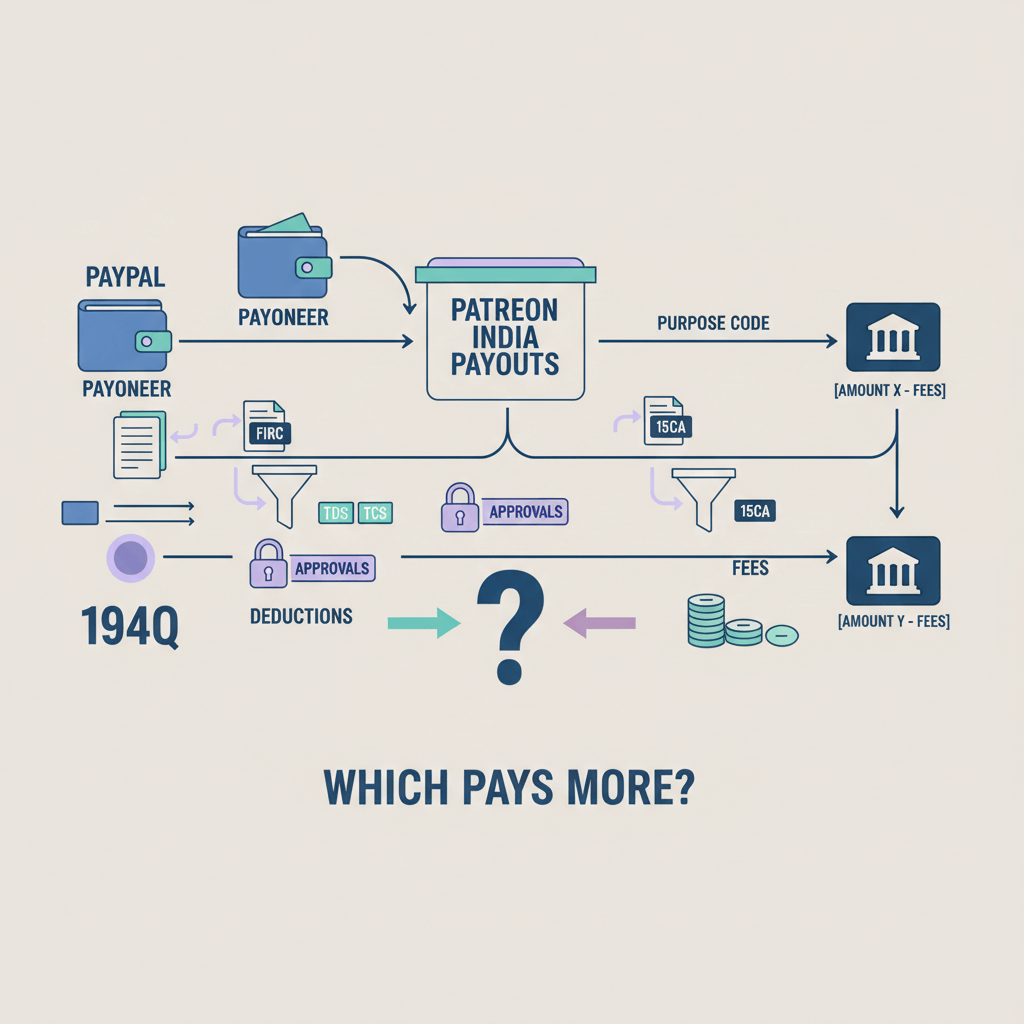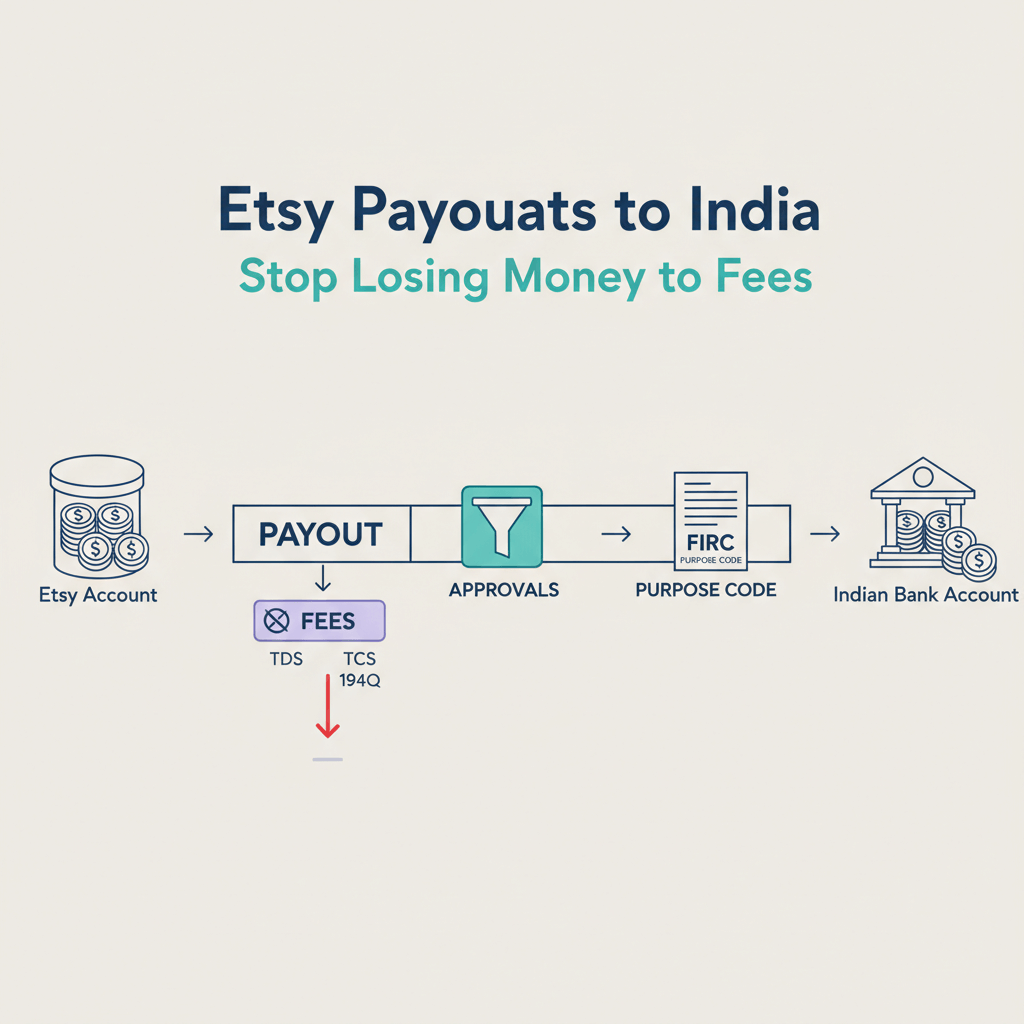Hiring contractors from abroad where the talent outshines what’s available locally is a smart move for your company. You gain access to skilled professionals, fresh ideas, and often, lower costs overall.
If only paying international contractors was as simple as hiring them.
SMBs, however, must deal with high transfer fees, unpredictable exchange rates, and payment delays.
Add to that the mountain of compliance checks, endless documentation, and occasional disputes, especially with RBI regulations, which is a lot to juggle.
The truth: forex transactions come with fees. But by choosing the right platform, you can reduce costs and make the process smoother.
There’s no perfect solution. The key is weighing the pros and cons of different options to figure out what works best for your specific needs.
Digital Payment Solutions to Pay International Contractors
PayPal
(Best for Businesses in Countries Without Restrictions)
PayPal allows individuals and businesses to send and receive money worldwide using an email address or mobile number. Users can link their PayPal account to a bank account, credit card, or debit card, making payments almost instant.
Cons:
- High fees: PayPal charges fees for both transactions and currency conversion, which can be significantly higher than other services. The total cost can reach up to 8% of the transaction amount, especially for international payments.
- Regulatory issues: Some countries experience regulatory hurdles with PayPal, restricting its full usage or availability. This can make it challenging for businesses in specific regions to use PayPal for international payments.
Karbon
(Best for Indian SMBs Paying International Contractors / Businesses Abroad Paying Indian Contractors)
Karbon is built for SMBs, especially those who need a straightforward way to pay Indian contractors or send money abroad. With a custom dashboard, it's fast and easy to manage transactions. You can easily track payments in real-time, have a simple documentation process.
Additionally, Karbon is RBI-compliant and certified for handling cross-border transactions, making it just as secure as traditional banks.
Cons:
- Primarily built for business transactions, not personal payments.
- Not suitable for large companies with employee contractors on payroll.
- Not ideal for bulk transfers.
Wise
(Low Volume International Transfer)
Wise (formerly TransferWise) helps individuals and businesses send money abroad at the real exchange rate, without the usual extra costs. After setting up an account and verifying your identity, you can send money by simply entering the recipient's bank details and the amount.
Wise is especially good for paying freelancers who may not receive payments frequently but still need an easy, low-cost solution for international transfers.
Cons:
- Transfer limits: For larger payments or certain payment types, users may need to go through additional verification to lift transfer limits, which can delay some transactions.
Traditional Ways to Pay International Contractors
Bank Wire Transfers
A bank wire transfer is an electronic transfer of funds between banks or financial institutions.
The transfer process involves the sender's bank communicating with the recipient's bank over a secure network, like SWIFT or CHIPS, to initiate the transaction.
Wire transfers are used because they are considered secure for sending large sums across borders. However, they aren’t always the best way to pay international contractors.
If you're an SMB making multiple payments each quarter, especially for amounts under $30,000 (₹22,50,000), wire transfers aren't always cost-effective.
Additionally, each transaction requires extensive documentation, particularly when paying Indian contractors or sending money abroad from Indian SMBs, due to RBI regulations.
Cons of Using Bank Wire Transfers:
- Exchange Rate Costs: As a sender, banks apply a TT selling rate (which varies from bank to bank) that is typically at least 2-4% higher than the mid-market rate.
- Transfer Speed: While wire transfers usually take 2-3 days, the process can be slower when businesses handle documentation themselves. Errors or delays in paperwork can further extend the transfer time.
- Limited Control: Once a wire transfer is initiated, it cannot be reversed without the recipient’s consent. This lack of control can be risky if there is a mistake in the transfer details or if the contractor fails to fulfill their part of the agreement.
Cheques and Demand Drafts
Cheques and demand drafts are written instructions from the payer to a bank to transfer funds from their account to someone else.
While cheques are commonly used for local payments, demand drafts are more suited to pay international contractors. This is because demand drafts can work with different currencies and are generally more secure (not the safest) than personal cheques.
Cons of Using Cheques and Demand Drafts:
- Slow Processing: The process of clearing drafts can take several days, which is a downside when you need to do an urgent, immediate payment.
- Risk of Loss: Since these are physical documents, they can be lost during transit, which could delay and create payment issues.
- Fraud Risk: Physical payment methods like cheques or demand drafts are susceptible to fraud because they can be lost, altered, or intercepted during transit. Additionally, forgery and unauthorized cashing are possible, adding a layer of security risk when paying foreign contractors.
Best Payment Solutions for Different Types of International Contractors
FAQs: Paying International Contractors
1. What factors should I consider when negotiating payment terms with international contractors?
Consider the contractor's preferred payment method, currency, payment frequency, and any potential taxes or fees that may apply. Clear communication about expectations is crucial for a successful partnership.
2. How can I protect myself against payment disputes with international contractors?
To protect against disputes, use a clear contract outlining payment terms, project scope, and deadlines. Additionally, consider using payment platforms that offer buyer protection features.
3. Are there specific platforms recommended for different types of international contractors?
Yes, for freelancers, platforms like PayPal and Wise are recommended due to their quick payment processes. For agencies, traditional bank transfers may be more suitable, while consultants might benefit from using Karbon Business for its tracking capabilities.











